
Survey results show a shift in pharma industry sentiment from optimism to caution as rising insecurity offsets high satisfaction and intellectual engagement.

Survey results show a shift in pharma industry sentiment from optimism to caution as rising insecurity offsets high satisfaction and intellectual engagement.

In Episode 31, industry veteran Deborah Dunsire goes behind the headlines to discuss the current state of innovation and evolving drug development landscape.

Digitalization is expected to reshape bioprocessing, supply chains, and quality systems for biopharma developers amid tariffs, geopolitics, and shifting capital flows, according to BioPlan Associates’ Eric Langer.
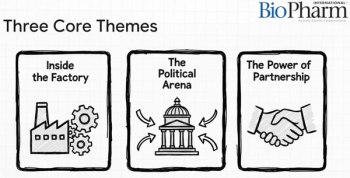
In the biopharma industry during 2025, quality, tariffs, MFN pricing, and strategic outsourcing deals drove innovation and investment.

Our top 10 videos of the year cover AI, innovation, compliance, and sustainability in biopharma.

FounderNest CEO Feliz Gonzalez breaks down where the biotech market stands today and where it’s headed in 2026

The top 10 BioPharm International articles of 2025 highlight policy shifts, manufacturing innovation, and strategic partnerships.

Autolomous and Trenchant’s partnership, begun early in 2025, addresses unmet CGT manufacturing needs, including slashing costs and cutting timelines.

$17.5M biopharma alliance leverages CAMP4's tech, addressin protein under-expression in haploinsufficient disorders

In Episode 30, John Androsavich, Benjamin Fryer, and John Wilkerson go behind the headlines.

Chris Spivey explains how billions wasted on flawed near-infrared glucose sensing could have been avoided.

The third installment of the monthly BioPharma By the Numbers infographic series details batch failure trends in biopharma.

In Episode 29, John Androsavich, Benjamin Fryer and John Wilkerson go behind the top headlines from 2025.

The discussion in this Drug Digest video focuses on optimizing biopharmaceutical manufacturing and supply chain efficiency through the mastering of AI capabilities, data integration, and critical validation challenges.

ADC oncology platforms, FDA CNPV rapid review, and significant investment into US biologics manufacturing capacity led this week’s news.

David Dodd, GeoVax Labs, opines on why vaccine platform diversity is critical in the United States.

Five bio/pharma sector leaders dissect FDA’s CNPV pilot program.

News in the week shows biopharma development being redefined by programmable biology and accelerated FDA review, stressing quality compliance and market efficiency.

Five leaders from across the bio/pharma sector explore the opportunities and challenges posed by FDA’s CNPV pilot program.

The CNPV demands parallel launch execution, requiring sponsors to pre-submit flawless CMC, align pricing with affordability goals, and use enhanced communication.

Industry experts weigh in on the potential impacts of FDA’s CNPV pilot on safety trade-offs, resource strain, and unclear incentives for sponsors.
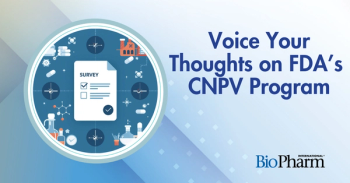
Help shape industry insights. Take our survey on the biopharma impacts of the FDA Commissioner’s National Priority Vouchers program.

This week’s biopharma news highlights formulation stability testing, automation in analytics, and achieving regulatory compliance.

At AAPS PharmSci 360 2025, Siddhant Sojitra, Alexion, defines an agitation model to reliably test stability for early-stage biologics.
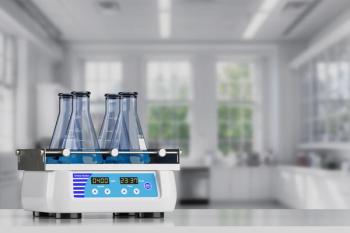
At AAPS PharmSci 360, Siddhant Sojitra defines a scientifically justified agitation model for the early-stage development of high-concentration biologics.
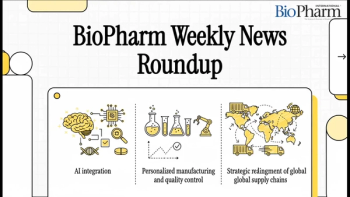
Novel biologics, from ADCs to in-vivo cell therapy, drive AI-enhanced quality control and supply chain flexibility in global biopharma innovation.

In Episode 28, Miroslav Gasparek, Sensible; Lizzy Lawrence, STAT; and Joe Lewis, Deloitte, go behind the headlines.
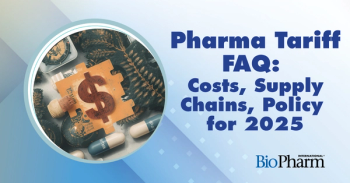
As pharmaceutical tariffs reshape costs and global supply chains, it’s essential for industry professionals to be informed about their core impacts and underlying mechanisms.

The second installment of the monthly BioPharma By the Numbers infographic series details the hiring and retention challenges faced by US biopharma.
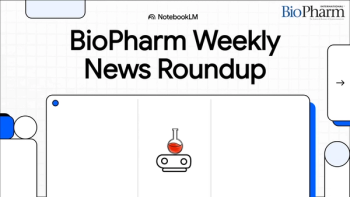
AI and innovative technology platforms are revolutionizing biopharma R&D and manufacturing, but success requires high data quality and next-gen solutions.